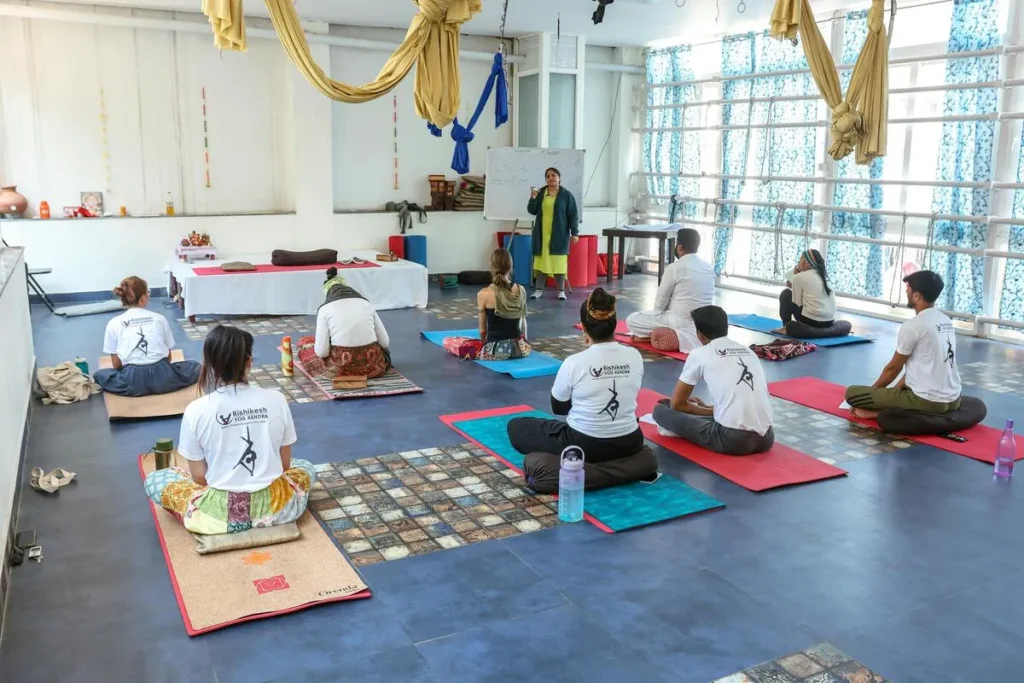Stress is something everyone can experience at some level. Stress can be empowering at times, but chronic or excessive stress causes significant physical, emotional and psychological challenges. Being at peace with stress is critical to staying healthy and improving quality of life. These are some of the best ways to reduce stress:
Table of Contents
1. Practice Mindfulness and Meditation
Mindfulness means being present in the moment without judgment. It alleviates stress by encouraging you to relax and be more conscious of what you’re thinking and feeling. One of the basic parts of mindfulness is meditation, a type of meditative breathing or image-shaping that relaxes the mind. How to adopt these habits:
- Make small steps: Spend 5-10 minutes each day in mindfulness or meditation. Increase the time a bit each time until you get used to it.
- Utilize guided apps: Guided meditation apps are great for beginners and experienced meditationists alike.
- Focus on your breathing: Take slow, controlled breaths to wake up your parasympathetic nervous system that opposes the stress response.
2. Engage in Regular Physical Activity
Exercise is an established stress reducer. Exercise increases endorphins, a natural mood booster and suppresses stress hormones such as cortisol. Exercise also facilitates quality sleep, which is disrupted by stress.
- Pick something you enjoy doing: Whether it’s yoga, dancing, swimming or walking, choose something you are passionate about so you don’t forget about it.
- Variety: Mix aerobic workouts (such as running or cycling) with strength and flexibility exercises for a multifaceted session.
- Socialize: Work out with friends or take group classes to boost motivation and community.
3. Maintain a Healthy Diet
The food you eat is the primary control mechanism for stress. Some foods promote stress and some help you relax and get more energy.
- Lessen caffeine and sugar intake: Consuming too much caffeine can increase anxiety and sleep disruption, and too much sugar can trigger energy crashes.
- Eat whole foods: Consume fruits, vegetables, lean proteins, whole grains, and healthy fats to keep your mood and energy levels balanced.
- Hydration: Lack of hydration leads to stress and exhaustion.
- Add stress-busting nutrients: Foods that contain magnesium (spinach, almonds), omega-3 fatty acids (salmon, flaxseeds) and antioxidants (berries) help to support the brain and minimize stress.
4. Prioritize Sleep
Sleep is the best way to heal the body and brain. Overwhelming stress interrupts sleep, leading to chronic fatigue and stress.
- Build regular habits: Go to bed and get up at the same time every day, even on the weekends.
- Make a restful atmosphere: Make sure your room is dark, silent and comfortable. If necessary, use blackout curtains and a white noise machine.
- Stop watching the screens: Stop watching the phone or TV screen at least an hour before bed because blue light disrupts melatonin levels.
- Relaxation: Reading, gentle yoga or even deep breathing can all tell your body it’s time to relax.
5. Develop Time Management Skills
Bad time management creates unnecessary stress. You can mitigate this by understanding how to prioritize and manage tasks.
- Utilize gadgets and calendars: Use online tools or a daily to-do list to track tasks and deadlines.
- Divide tasks into pieces: Take one tiny step at a time, and it becomes easier to tackle large projects.
- Learn to say no: Limiting yourself, and never going overboard is the best way to safeguard your time and energy.
- Prioritize things that are important: You can employ tools such as the Eisenhower Matrix to organize what’s most important and most urgent.
6. Build a Strong Support System
The bond with others is an excellent antidote to anxiety. If you share your feelings and thoughts with friends, family, or coworkers it can give you some relief and clarity.
- Communicate: Make sure to check in with your family regularly, even if it’s just a phone call or text message.
- Join groups for support: It can be comforting and understanding to share with others who are struggling with the same issue.
- Get professional help: A counsellor or therapist can provide you with resources to manage stress and correct deeper issues.
7. Practice Relaxation Techniques
Stress can be managed by incorporating relaxation techniques into your day-to-day routine.
- Slow, incremental muscle relaxation: Stretch and loosen each muscle, beginning from your toes and going upwards.
- Visualization: Visualize yourself in an idyllic, peaceful place such as a beach or forest.
- Aromatherapy: Lavender, chamomile, eucalyptus, and other essential oils can help you relax when sprayed or rubbed into the skin.
- Massages: A regular massage can make one feel relaxed and healthy.
8. Cultivate Gratitude
Looking for the good in life is a way to change your mindset and alleviate stress.
- Gratitude journal: Write down three things each day you’re grateful for in your gratitude journal
- Be grateful: Share your gratitude with others in the form of words or gestures.
- Recite positive thoughts: Repetition of affirmations will transform negative thoughts.
9. Limit Exposure to Stressors
Some stressors are unavoidable, but others can be reduced or eliminated.
- Limited technology: Keep yourself away from social media and news that may worsen your stress.
- Avoid unhealthy connections: Surround yourself with people who inspire you.
- Get organized: Clearing out your house or workplace will help alleviate a sense of disarray and calm your spirit.
10. Engage in Hobbies and Creative Activities
Following your passions can be an easy stress-relief strategy.
- Try to be creative: Painting, writing, gardening, or playing an instrument can get you in the flow and relax your mind.
- Learn something new: Having a new skill or interest gives you a sense of self-confidence and achievement.
- Playing games: Board games, puzzles, sports or any other activities that are enjoyable and relaxing can relieve stress.
11. Practice Self-Compassion
Treating yourself well in stressful situations will improve resilience and emotional stability.
- Accept your emotions: Don’t be afraid to feel stressed out. Recognize these emotions without judgment.
- Stay away from self-criticism: Switch your negative thoughts to positive ones.
- Be kind to yourself: Recognize that you can’t be perfect and that you can go wrong.
12. Laugh Often
Laughter is a natural stress reliever that increases endorphins and lowers cortisol.
- Watch comedies: A funny film or a comedy stand-up show can relieve your stress almost immediately.
- Share funny stories: Telling jokes or recalling about funny times will help make friends and get everyone in a good mood.
- Finding happiness in every day: Find jokes and laughter in everyday life.
13. Connect with Nature
Getting outside for long periods of time can have a profound relaxing effect.
- Go for a walk: A trip to the park, lake or hike in the mountains will keep you stress-free and able to concentrate.
- Grounding: When you are on grass or sand, go barefoot and feel the connection with the earth.
- Planting: Putting plants around your house or office can make your home or office a comfortable place.
14. Adopt a Growth Mindset
By approaching challenges as learning experiences, you will change your attitude toward stress.
- Problems as opportunities to learn: Do not perceive stressors as threats; instead, look at them as opportunities to learn.
- Embrace success: Celebrate the little things that get better and better.
- Welcome changes: You need to recognize that change is good because it’s the first step to improvement.
15. Focus on Spiritual Practices
Spirituality is a form of meaning, and it brings some sort of calmness to people.
- Engage in Prayer: Spirituality is a form of meaning, and it brings some sort of peacefulness and calmness to people.
- Research philosophy: Reading spiritual or philosophical books can help you look at stress and life’s issues from a different angle.
- Join spiritual groups: Spiritual groups or classes provide friendship and encouragement.
Final words
The correct stress management involves an overall physical, mental and emotional approach. Incorporating these strategies into your life can help you to become resilient, reduce stress and improve your life quality. Stay true to yourself, do what works for you and ask for expert help when needed. Managing stress doesn’t involve the elimination of problems but a systematic approach to how to make it work and solve it.



















